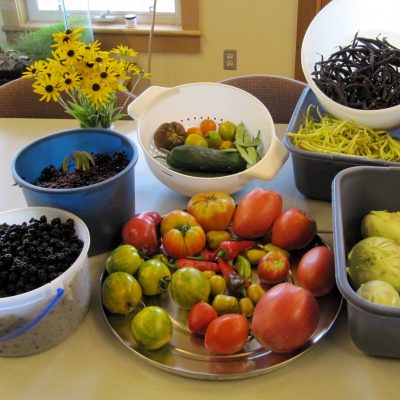by Patrick Maxwell, MCCN staff intern
A garden situated between a Mosque and a Mennonite church in Champaign, Ill., is growing more than produce—it’s also growing relationships. Members from both the Central Illinois Mosque & Islamic Center and the First Mennonite Church of Champaign-Urbana have been gardening together for two years now.
Their garden is currently full of tomatoes, peppers, carrots, radishes and flowers, but as Brian Sauder, the coordinator of the collaborative garden says, “It’s not really to see how much produce we can create.” The garden is for growing and developing relationships.
Members of the mosque and church are committed to maintaining the garden, and as Sauder observed, “the understanding and interest is growing [between the two congregations.]” For example, both youth groups have visited each other since the garden began.
It is difficult to coordinate people with busy schedules. However, Sauder, who’s helped multiple congregations start gardens, notices a difference with this garden. “What I’ve seen with the peace garden is that it’s difficult, but less than usual. The distinction here is the interest between the two congregations—the interest in the relationship helps keep people motivated.”
Sauder, a Mennonite who studied at both University of Illinois and Urbana Theological Seminary, is passionate about the intersection of ecology and religion. He is currently working with Faith in Place, which is an organization devoted to helping congregations reduce their carbon footprints.
Faith in Place encourages congregations to form a Green Team, a group of people from the congregation that work directly with Faith in Place and their congregation to initiate change. It is similar to the organization of MCCN, which uses a congregational liaison to serve as the link between the congregation and MCCN. Both Faith in Place and MCCN provide resources and support to help congregations reduce their carbon footprints—in any way possible.
For Sauder, caring for creation and building relationships are synergistic. “To be able to do this takes work,” said Sauder. “But it builds trust, builds comfortableness, and when that happens…it brings hope.”
And though a garden may reach the end of its growing season, as Sauder says, “there’s always room to grow and have more relationships.”
